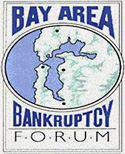
408-971-6270
Making Time for Minutes: The Importance of Keeping Formal Corporate Records
 Many entrepreneurs will organize their business into a limited liability company (LLC) or similar entity to obtain limited liability protections. Lawyers counseling these business owners often recommend that their clients observe corporate formalities by following such practices as conducting regular corporate meetings, taking minutes of those meetings, and approving resolutions of important actions taken by the LLC. Maintaining limited liability is an important reason for a company to follow corporate formalities and maintain formal records, but there are other important reasons to maintain these practices that are even more basic.
Many entrepreneurs will organize their business into a limited liability company (LLC) or similar entity to obtain limited liability protections. Lawyers counseling these business owners often recommend that their clients observe corporate formalities by following such practices as conducting regular corporate meetings, taking minutes of those meetings, and approving resolutions of important actions taken by the LLC. Maintaining limited liability is an important reason for a company to follow corporate formalities and maintain formal records, but there are other important reasons to maintain these practices that are even more basic.
In the case Kelegian v. Mgrdichian (1995) 33 Cal. App. 4th 982, a California Court of Appeal quoted the trial judge’s wise words:
If you have an agreement on a subject, if it isn't too important people oftentimes do it orally. If it is very, very significant, people generally put it in writing because it is very important and they understand that memory fades and that proving the terms of an oral agreement are difficult; similarly, with Board meetings when matters of relative insignificance are discussed, there may be things that are talked about that are not memorialized in resolutions. But generally, I think business people understand, lay people, and, certainly, lawyers do[,] that if it is a matter of significance, of any importance at all, that it is only prudent to memorialize it in the minutes, especially when you have minutes and you have resolutions. To then come later and say I know we didn't put it in the form of a motion and I know we didn't vote on it, but I think everybody had similar comments is a very uphill battle for a plaintiff. And I don't think that is a matter that these plaintiffs would not be familiar with, from seeing them on the stand and from their business backgrounds. Id. at 987-988.
In Kelegian, the Court found that a corporate policy that the plaintiffs were insisting existed did not in fact exist because there was no formal record of the policy in the corporation’s minutes or resolutions. The lesson from that situation is that keeping formal records is important for the obvious purpose of recording the corporation’s plans, policies, and decisions. Many small corporations that may have only a few shareholders who get along amicably may think that such formalities are unnecessary because of the solid relationship between the owners. But, as the trial judge in Kelegian stated, “memory fades” and even the best of intentions between co-owners cannot prove to an outsider what exact action the corporation took ten years ago.
"People may assume, as the trial judge in Kelegian did, if you didn’t write it down in the minutes, it didn’t happen."
Corporate minutes should reflect the major events of the corporation. Major decisions and actions that a corporation makes should be specifically approved by a corporate resolution. To maintain corporate formalities and to protect the entity’s limited liability status, executed (signed) copies of these documents should be maintained in a corporate binder, or some other safe, secure and organized method (either physical or electronic.) Consistently maintaining these documents and complying with corporate formalities under California law will help to ensure that your corporation maintains its limited liability status and that the principals involved remain free from personal liability. It will also serve to memorialize the actions, decisions, and plans of the corporation to prevent future disputes.
- The following matters, for example, should be memorialized in corporate records:
- Significant Asset Sales or Purchases
- Bonuses and Compensation Changes to Executives
- Significant Charitable Contributions
- Distributions
- Under California law, a corporation can only make distributions if certain financial requirements are met (see, e.g., Cal. Corp. Code § 500 et seq.). To protect the corporation and make a record that the corporation complied with these requirements, when making a distribution it is important to keep consistent records of the circumstances in which the corporation makes a distribution.
- Election, Re-election, and Appointment of Board Members and Officers
- Election, appointment, or reappointment of board members and officers can be used to establish the term for which the directors or officers will serve.
- Ratification of Related Party Transactions Such as Related Party Loans, Leases, Etc.
- Any Business Valuations
While most business owners want to spend their time dealing with the substance of their business, a responsible business owner should devote at least a small portion of their time and resources every year to make sure that the actions and decisions of the business are being properly memorialized. A relatively small investment of time and expense can result in significant benefits when minutes or other documents are available to prevent ambiguities, misunderstandings, or disagreements. It is always a good idea to spend a little time now to make sure all your records are in order, so that you can avoid long and expensive litigation down the line. Accordingly, we encourage all business owners to make time for minutes. Meeting once a year with your attorney for an “annual checkup” to is a good way to make sure your company is complying with the appropriate corporate formalities and is appropriately recording major events.
Related Posts
By accepting you will be accessing a service provided by a third-party external to https://www.diemerwei.com/






